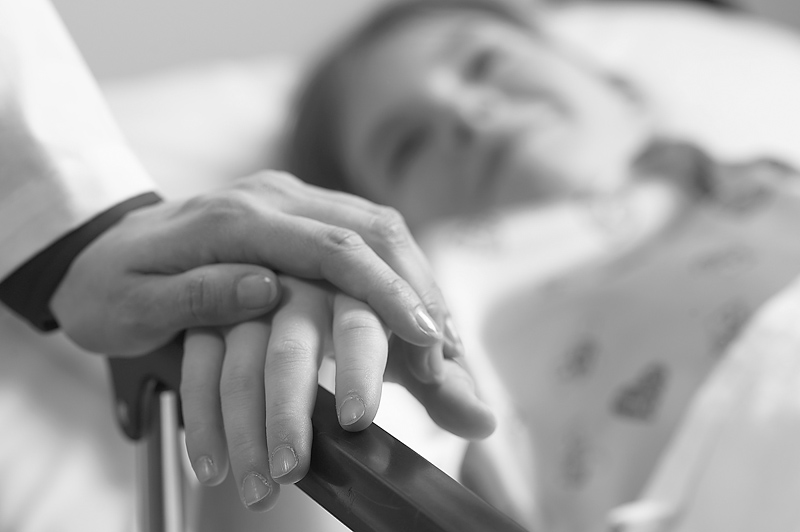WEDNESDAY, Nov. 23, 2016 (HealthDay News) — Patients who’ve recently undergone surgery — especially those with cancer or autoimmune diseases — experience slightly higher risks of developing a rare muscle disorder soon afterward, new research suggests.
Evaluating 20 years of data, Mayo Clinic scientists found that 15 percent of patients who developed Guillain-Barre syndrome had undergone a surgical procedure in the prior eight weeks.
Guillain-Barre is a rare syndrome affecting only about one in 100,000 people. Symptoms include increasing muscle weakness that sometimes leads to total paralysis, according to the U.S. National Institutes of Health. It can be fatal if it interferes with breathing.
“I don’t think patients for any reason should be dissuaded from undergoing a surgical procedure they need because of this [research],” said study author Dr. Sara Hocker. She is an associate professor of neurology at the Mayo Clinic in Rochester, Minn.
“Out of 50,000 surgical procedures, we found 31 patients [who later developed Guillain-Barre],” Hocker added. “It’s a rarity.”
Thought to originate in the immune system, Guillain-Barre syndrome has been linked in prior research to respiratory or gastrointestinal viral infections and certain vaccinations, though it can strike anyone. Zika virus may also be connected to Guillain-Barre syndrome.
For this study, Hocker and her colleagues reviewed the incidence of Guillain-Barre syndrome in Mayo Clinic patients within two months of having a surgical procedure between 1995 and 2014. Those with post-surgical Guillain-Barre were compared to patients who didn’t undergo surgery prior to its onset.
Of the 208 total patients (average age 55) who developed Guillain-Barre syndrome in that time period, 31 had recently undergone surgery. The average time lapse between surgery and Guillain-Barre onset was 19 days, the study found.
Notably, 61 percent of those 31 patients had a known cancer diagnosis, while 29 percent suffered from an autoimmune condition, such as ulcerative colitis, type 1 diabetes or rheumatoid arthritis, among others.
This means patients with cancer within the prior six months were seven times more likely to develop Guillain-Barre syndrome after surgery, and those with autoimmune illnesses were five times more likely, the researchers said. Autoimmune disorders occur when the body attacks its own tissues.
“Substantial evidence has already been found to support an autoimmune cause of [Guillain-Barre syndrome],” Hocker said. “Perhaps the surgical procedure itself and the stress of anesthesia triggered an autoimmune reaction in those who were predisposed.”
What symptoms might post-surgical patients watch out for?
Dr. Thomas Mueller, section chief of neurology at Christiana Care Health System in Wilmington, Del., said Guillain-Barre usually starts with tingling in the fingers and toes. “But the real hallmark is progressive weakness over days,” he said.
“There’s a whole range of [Guillain-Barre syndrome] — it can be really mild or really severe,” Mueller added. Treatment involves blood plasma exchange or infusions of healthy donor antibodies, he said.
Dr. Eugene Lai, a neurologist at Houston Methodist Hospital in Texas, said the new findings that seem to link Guillain-Barre syndrome to surgery “could still be a coincidence.” Lai questioned whether another, unknown factor may have contributed to the results.
“It’s a good start with interesting results that brings people’s awareness to a potential trigger for [Guillain-Barre syndrome],” Lai said, “but more study needs to be done.”
The association reported by the researchers doesn’t prove a cause-and-effect relationship.
Hocker noted her research was limited by its retrospective nature, which looked back at data that had already been gathered by other researchers.
“It was largely dependent on what was already written in the [patient] charts,” she said. “I think having a prospective [forward-looking] registry or other format to dig deeper to the differences between those patients who develop Guillain-Barre syndrome after surgery and those who develop it in the general community would be better.”
The study was published online Nov. 23 in the journal Neurology: Clinical Practice.
More information
The U.S. National Institute of Neurological Disorders and Stroke offers more information on Guillain-Barre syndrome.
Copyright © 2026 HealthDay. All rights reserved.

